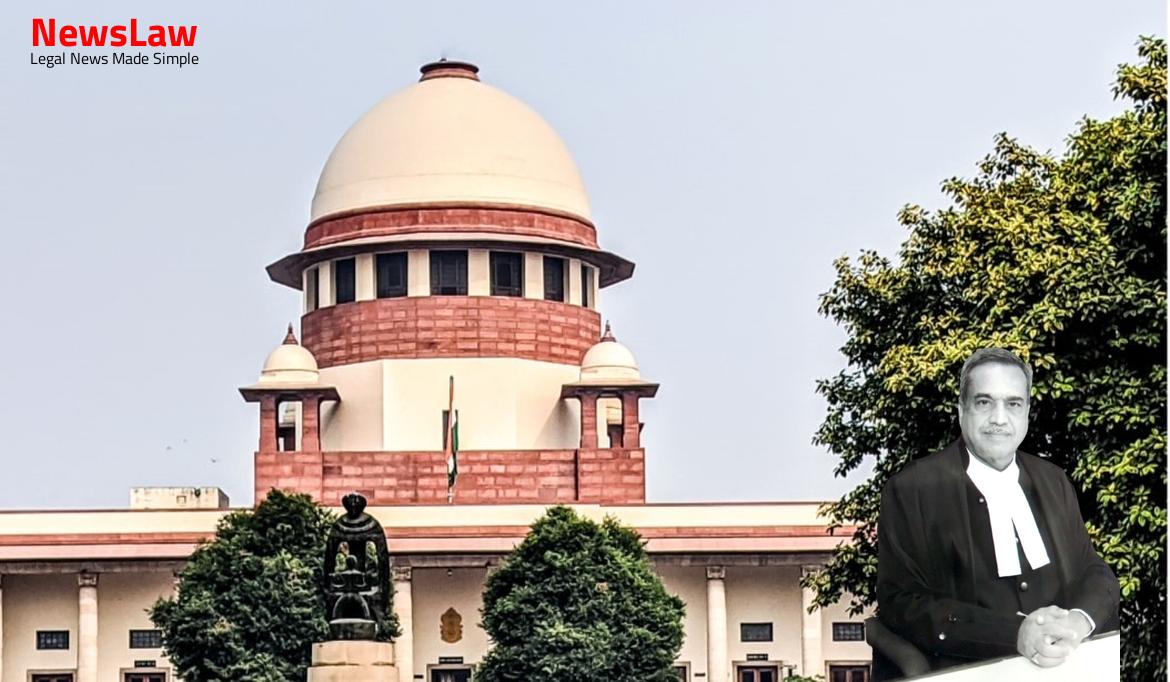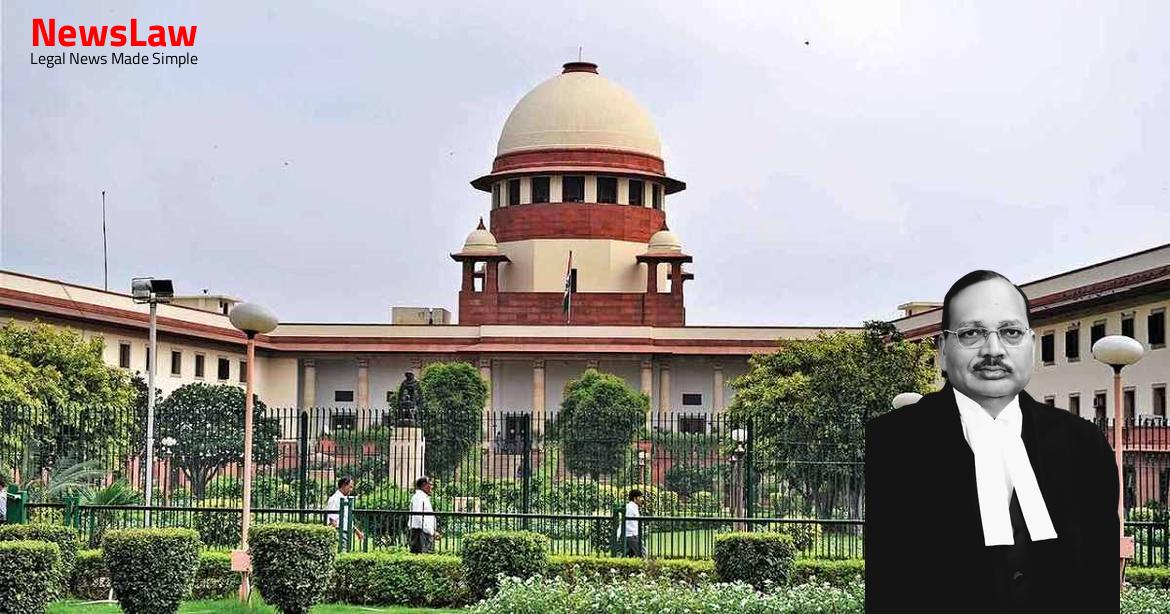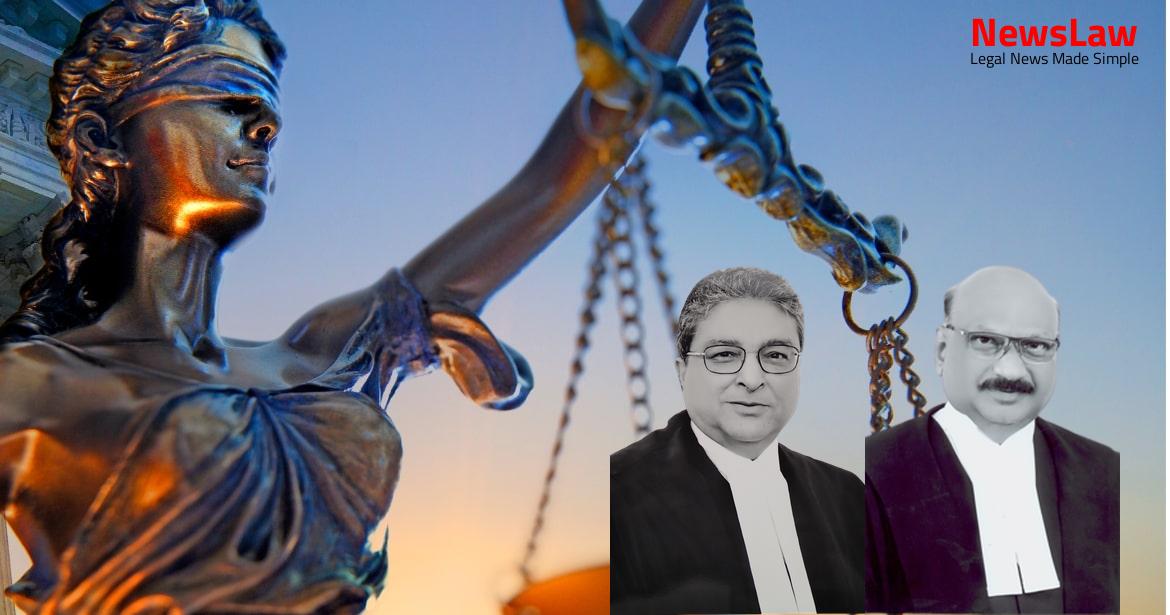In a recent legal case, the court delved into the complexities of interpreting multiple dying declarations in criminal cases. The analysis focused on the importance of consistency and reliability in witness statements, highlighting the need for thorough examination of evidence to ensure fair justice. Follow along to understand the legal intricacies involved in assessing dying declarations in criminal law.
Facts
- Appellant convicted under Section 304-B of the IPC.
- High Court confirmed conviction but reduced sentence to 7 years.
- Trial court acquitted parents of the appellant due to benefit of doubt.
- Appellant sentenced to 10 years of rigorous imprisonment by trial court.
- Appellant Makhan Singh appealed against High Court judgment to this Court.
- Deceased Manjit Kaur married to the appellant on 28 January 1996.
- Deceased Manjit Kaur was taken to a private Nursing Home of Dr. H.K. Sobti (PW-1) at Kurukshetra where she was admitted.
- Deceased Manjit Kaur made a request for recording her statement under Section 164 of the Cr.P.C on 24 April 1998.
- A dying declaration (Ex. PE) was recorded by Ms. Kanchan Nariala, Judicial Magistrate, First Class, Kurukshetra (PW-6) on 24 April 1998.
- In the dying declaration, Manjit Kaur stated that her husband demanded Rs. 6 lakhs to go to the USA.
- An FIR was registered based on the dying declaration on 25 April 1998.
- The Investigating Officer recorded her oral statement on 28 April 1998 which led to the framing of charges under Section 304-B of the IPC.
- Deceased Manjit Kaur was referred to PGIMS, Chandigarh, where she later passed away on 9 May 1998.
- The appellant demanded Rs. 30,000 from the parents of the deceased, which they paid to him.
- The appellant used the money for traveling to Moscow instead of the stated purpose.
- It is alleged that the appellant demanded dowry from the parents of the deceased, causing distress to the deceased Manjit Kaur.
Also Read: Presumption of Genuine Endorsements in Cheque Case
Arguments
- The appellant’s counsel argued that the death was accidental.
- The first dying declaration mentioned that the deceased had consumed the medicine by mistake.
- It was pointed out that the second dying declaration was influenced by the deceased’s parents.
- In cases of conflicting dying declarations, the accused is entitled to the benefit of doubt.
- The counsel concluded that the order of conviction should be set aside.
- Higher officer’s dying declaration generally relied upon in case of inconsistencies
- First dying declaration found influenced by husband, second one independent
- Concurrent findings of fact support non-interference
- Citations used to support submission
- Summary of law on dying declaration from previous case
- Each dying declaration to be appreciated independently, no corroboration needed
Also Read: Medical Negligence and Compensation: A Landmark Decision
Analysis
- Two dying declarations in the case are inconsistent and contradictory to each other, creating doubt on their truthfulness.
- The second dying declaration (Ex. PE) was recorded without certification of fitness from a Medical Officer, raising concerns about its voluntariness.
- Witnesses did not support the second dying declaration, indicating possible tutoring by relatives.
- The prosecution did not examine key witnesses like Ms. Vani Gopal Sharma (DW-1) and K.K. Rao, DSP (DW-2), leading to doubts about the fairness of the investigation.
- In cases of multiple dying declarations with inconsistencies, reliance may be placed on the one recorded by a higher officer like a Magistrate.
- The first dying declaration (Ex. DO/C) is endorsed by Dr. Sobti (PW-1) with remarks of deceased being conscious throughout the statement.
- Ms. Vani Gopal Sharma (DW-1) recorded the first dying declaration where deceased exonerated the appellant and family, while implicating them in the second declaration.
- Ms. Vani Gopal Sharma (DW-1) ensured deceased’s fitness to make the statement and certified her consciousness throughout.
- The defense examined Ms. Vani Gopal Sharma (DW-1) due to prosecution’s failure to present her as a witness.
- Dr. Sobti (PW-1) certified deceased’s consciousness in the first dying declaration.
- The defense witness, K.K. Rao (DW-2), confirmed the absence of individuals during the recording of the statement by Ms. Vani Gopal Sharma (DW-1).
- The first dying declaration (Ex. DO/C) is considered more reliable and trustworthy than the second one (Ex. PE).
- Conviction of the appellant based on the same evidence was deemed improper.
- The benefit of doubt given to the other accused should have been extended to the present appellant as well, as the evidence was identical against all three accused.
Also Read: Remand of Writ Petition for Restoration and Decision on Merits
Decision
- The appeal is allowed
- The judgment dated 15 May 2009 passed by the High Court of Punjab and Haryana at Chandigarh in Criminal Appeal No.1189-SB of 2002 and the judgment and order dated 13/16 July 2002 passed by the trial court in Sessions Case No 55 of 1998 are quashed and set aside
- The appellant is acquitted of all the charges charged with and his bail bonds shall stand discharged
Case Title: MAKHAN SINGH Vs. THE STATE OF HARYANA (2022 INSC 831)
Case Number: Crl.A. No.-001290-001290 / 2010



